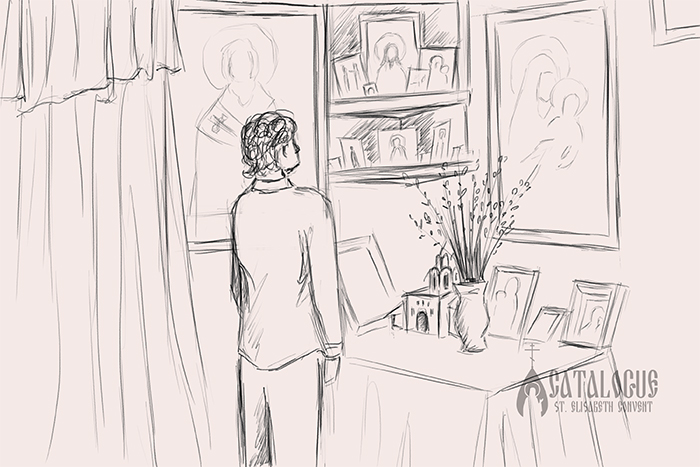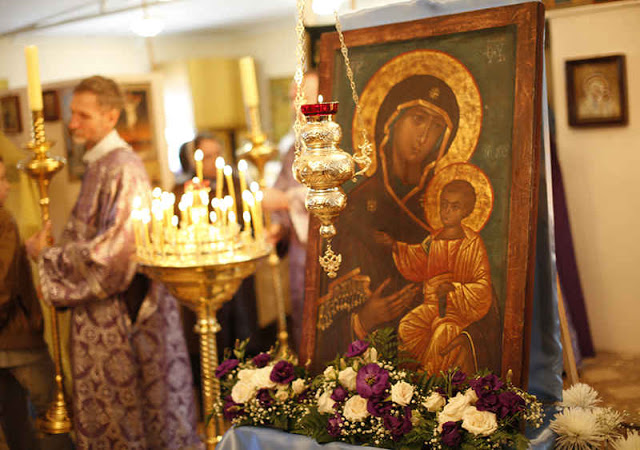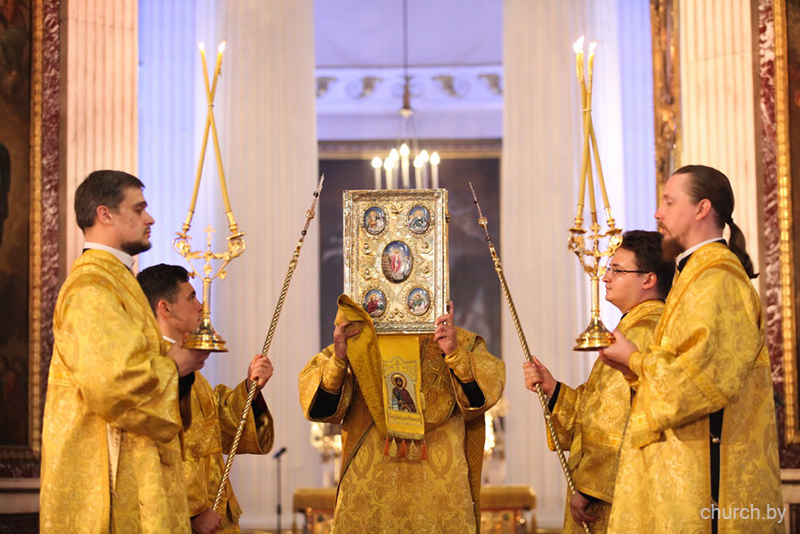
Everyone who is sufficiently familiar with the divine service of the Russian Orthodox Church, must have wondered at least once why we have Matins in the evening and Vespers in the morning during the Lent. How did this happen and is it not only a violation of the rubrics, but also contrary to common sense? Let’s try to answer these questions by presenting arguments in favor and against this practice.
The Sabbaite Typikon, adopted by the Russian Church in the 15th century, prescribes All-Night Vigils on the eve of major holidays. These are long night services, consisting of Vespers, Matins, and the First Hour. Such services were extremely long, which was why the worship began in the evening and ended at dawn. In 1713, a new Archieratikon of the Dormition Cathedral was issued in Moscow, which implied a much larger number of vigils than before. People couldn’t stand the entire service and began to reduce it. They removed biblical songs, the readings of patristic works and synaxaries, and curtailed other parts. As a result, the matins slowly moved from its rightful place to the evening and remains there to this day.
Pros. The main argument in favor of the existing practice is the comfort and habit of both the clergy and lay people. Orthodox Matins can last from two to three hours, so it is more convenient to do it right after the Vespers than in the early morning before the Liturgy, when it may have to start at about six or even five o’clock in the morning. While this is still possible and is in fact observed in some monasteries, the return of the Matins to its canonical place in the parishes means that most parishioners are unable to attend it, which is undesirable from the pastoral viewpoint.
Matins is more of a night service than a morning service. Therefore, due to the fact that it is impossible to celebrate it in a parish 2-3 hours before dawn, it is preferable to do it in the late evening. This practice of performing predominantly nocturnal services in the evening was already well established in Byzantium. In those days, there was such a sequence as Pannuktos (Greek. Πάή ήΰζτος – all-night), which was celebrated on the eve of the holidays after the Vespers. The Pannuktos was followed by the reading of one of the kontakions of Roman the Melodist (the largest hymnographic work, consisting of one kontakion and 23 ikoses) and the service lasted all night. However, according to the testimony of the famous liturgist Michael Arrantz, the Byzantines began to shift it to the evening time, and, most likely, for reasons of lenience in relation to the lay members, so as not to request monastic exploits from them. For the same reasons, perhaps, we can regard serving of the Matins in the evening in modern practice as a pastoral concession.
Cons. The practice of celebrating the Matins in the evening is quite recent and has been in use in Russia for a relatively short period of time. Therefore, although many people are used to it and consider it to be common practice, this fact cannot be called a tradition of the Church. Matins and Vespers, which originated in the Old Testament practice of worshipping God in the morning and evening, were devised by the Church as special offerings of praise, intended to sanctify the key time of day, i.e. the morning, as the appearance of light and the beginning of the working day, and the evening, as the onset of night darkness and rest from daytime worries. The text of the Matins and Vespers, their psalms, petitions, and prayers were based on the time of day. Therefore, it is not quite right, and even awkward, to thank God for the dawn in the evening, when the sunset has just been over; and for the fact that we have risen from our sleep, while half an hour earlier we were asking Him to have a “peaceful night”. Even worse, when the Vespers takes place during the Lent, evening psalms, hymns, and prayers are recited in the morning (“Having Seen the Evening Light” “We ask the Lord for a holy, peaceful and sinless night.”)
While the average layperson does not notice this discrepancy between the prayers and the time of day, it is plainly obvious to the priest, who reads the evening lamplighting prayers (in essence, bedtime prayers) in the morning. Such a situation can lead to an increase in the formalistic attitude towards the divine service and its message.
What Should We Do? The problem essentially boils down to the fact that the Russian Church has no distinct parish code apart from the monastic one. At the moment, each parish is free to choose the extent to which it cuts the statutory worship (which is often the case even in monasteries), even though such reductions may not always be appropriate.
It is possible to have the Vespers in the evening, paying more attention to good reading and singing all the stichera, rather than reading one or two of them as is sometimes the case. The entire divine service will take no more than an hour. We can start the Matins (more or less abridged as is practiced in the parishes) an hour and a half before the Liturgy, and then we can proceed to the Liturgy after the Great Doxology, as is customary in the Antiochian, Jerusalem, and other Churches. You can read the canonical Hours, that are less important services of the daily circle, in private each in its own time, for which they were created. Thanks to their brevity and simplicity, they can be prayed by any lay person.
It is worth remembering that parishes live and thrive not in a place where everything is formally right and in accordance with the Typikon, but where people want to pray to God and grow in Christ, in line with their circumstances and the resources of both clergy and parishioners. It is well known that the attendance of morning Matins by lay people in Greece is very low and that the majority of them simply arrive by the end of the Matins when it is time for the Liturgy. Could it make sense to emphasize pastoral leniency even if it were to break the letter of the Typikon? Each parish is free to decide for itself.




How about a shorter Matins in which you have the required parts (Hexapsalmos, Ode 9, Propers for the Day, etc.) that would last half an hour?
Dear in Christ Edward, thank you for your question and we apologize for a late response.
I think that it will be quite difficult to celebrate the Matins with the required elements for just half an hour. The reading of daily psalms is also important. How about other Odes, the Canon, the praise psalms and great doxology? It should be examined by the Church which elements are more important than others and which parta are essential for Matins.
However, it is only my personal opinion.
Thank you, Read John. I have been wondering about a lot of these things. Right now in Ottawa we have a vigil, but not many people come. We go through Vespers quite quickly, especially if there are no readings. When we come to matins, we do read some psalms, usually only three for a kathisma. When it comes to the canon, we do a lot, but not all and it is only read (we do sing the opening odes). We continue to the Great Doxology. Sometimes after this we just say Lord have mercy twelve times and go home. We do not say the Litanies as we are sometimes very tired and there are no other people in the church by that point accept the singers and readers. I am not sure if this is right, but that is what we do.